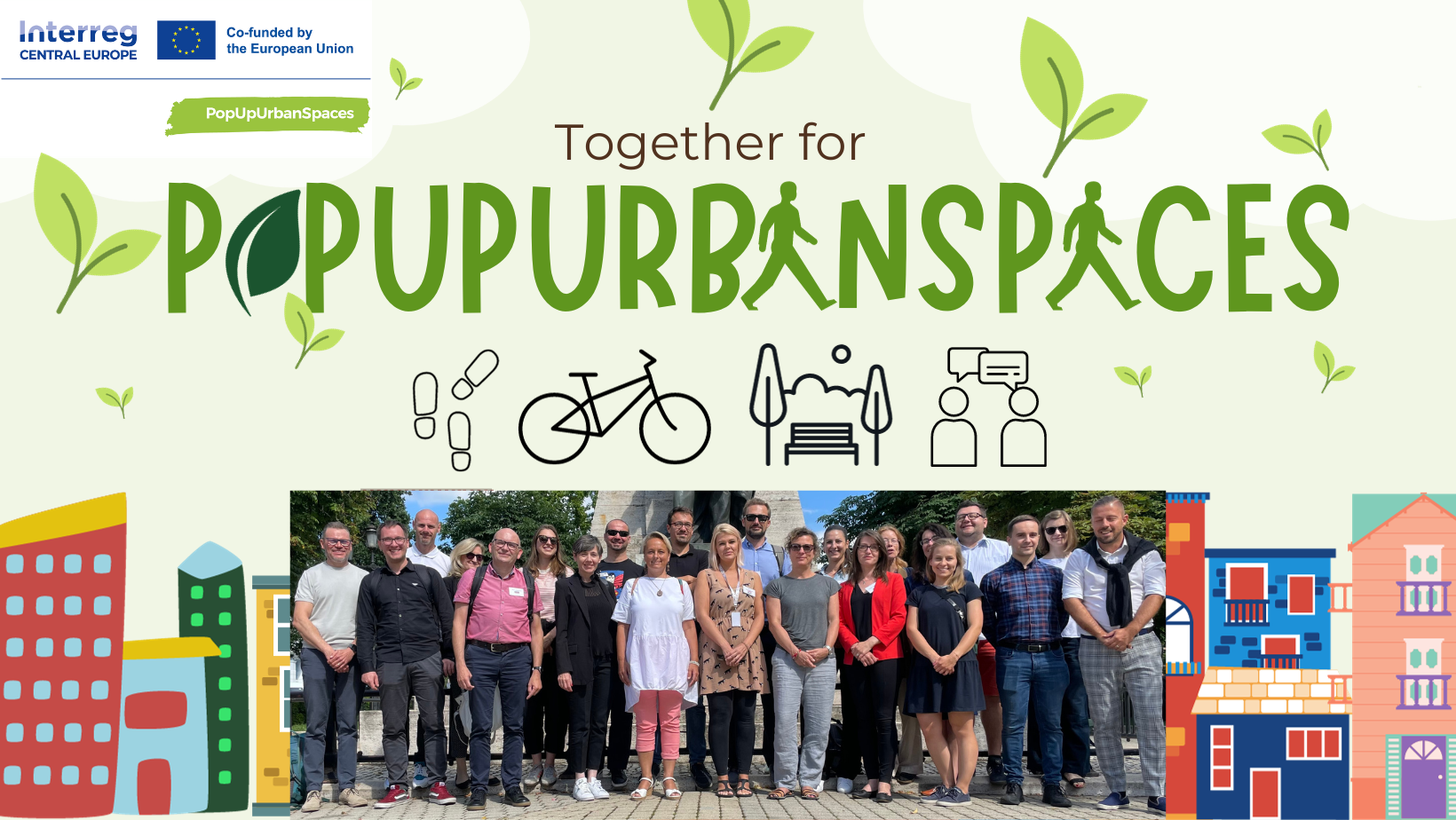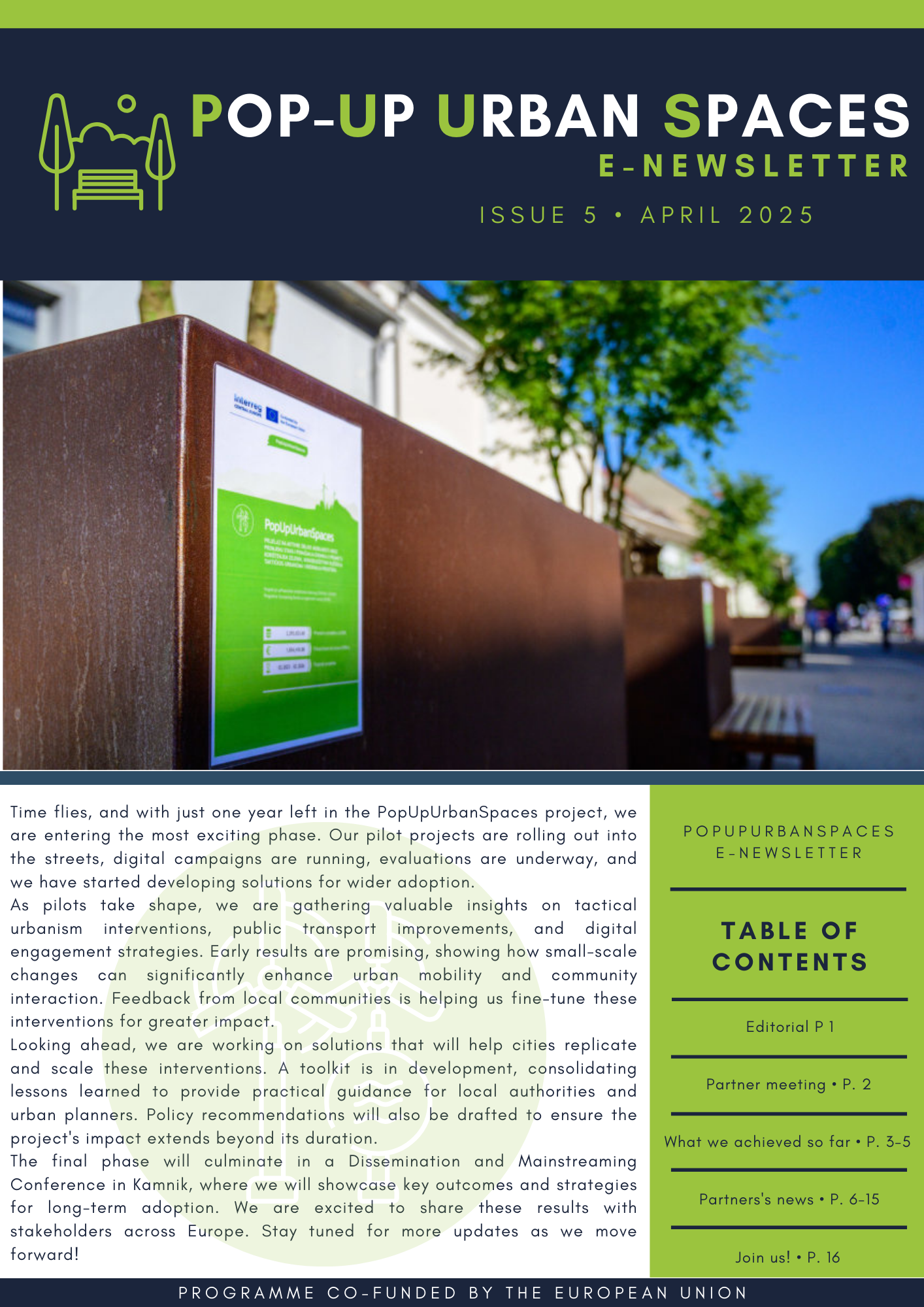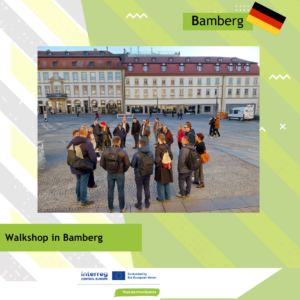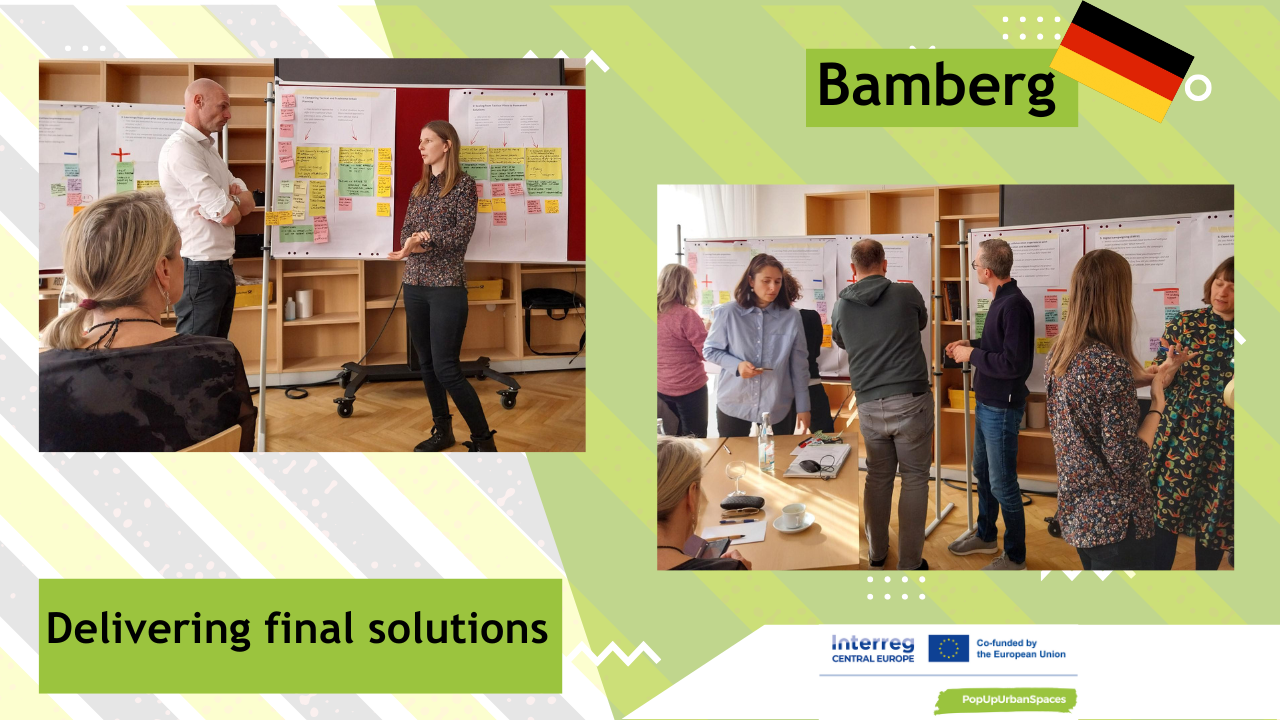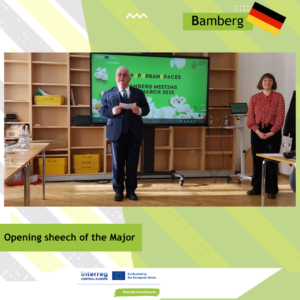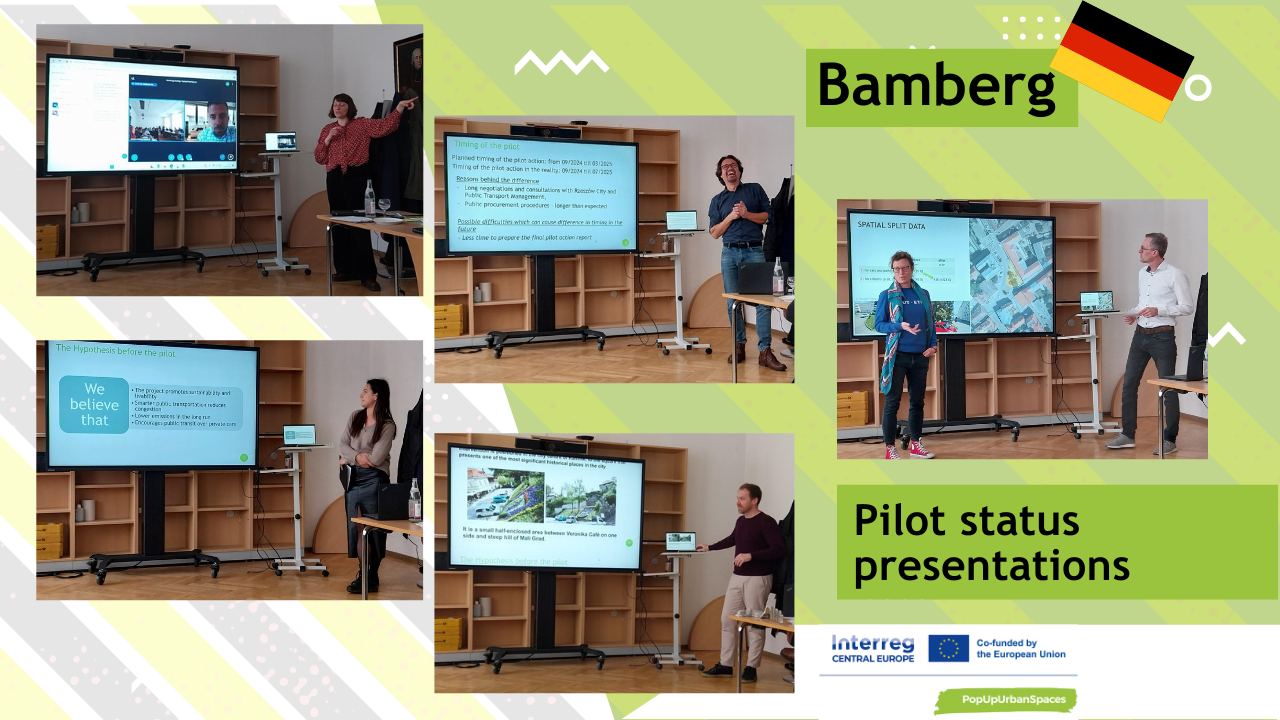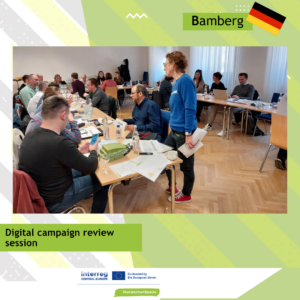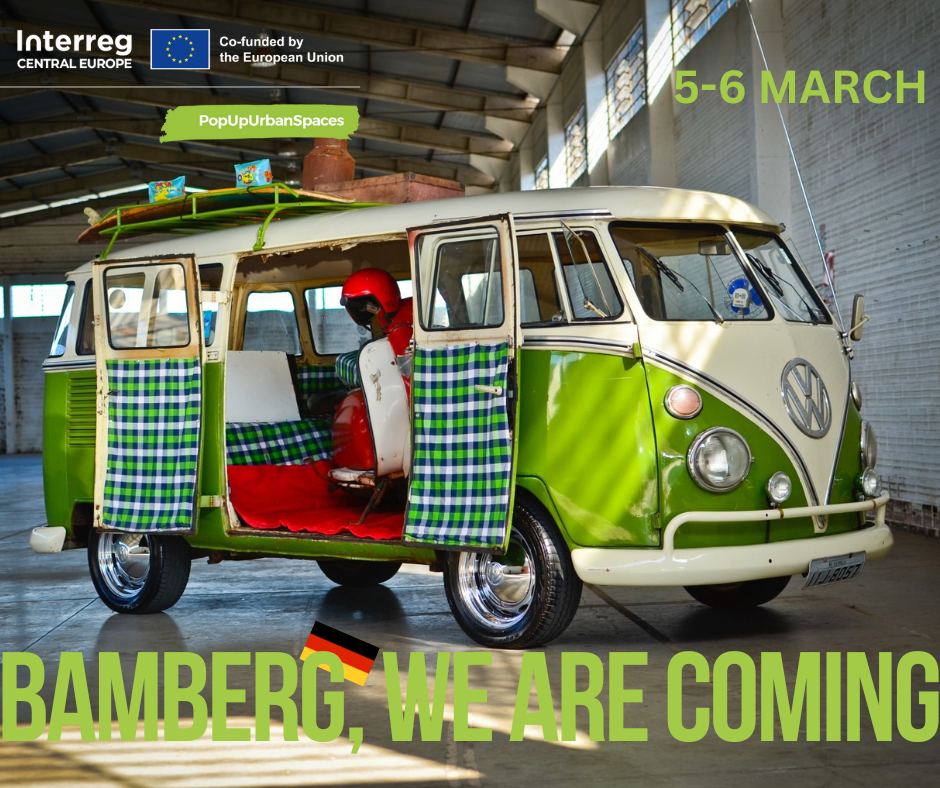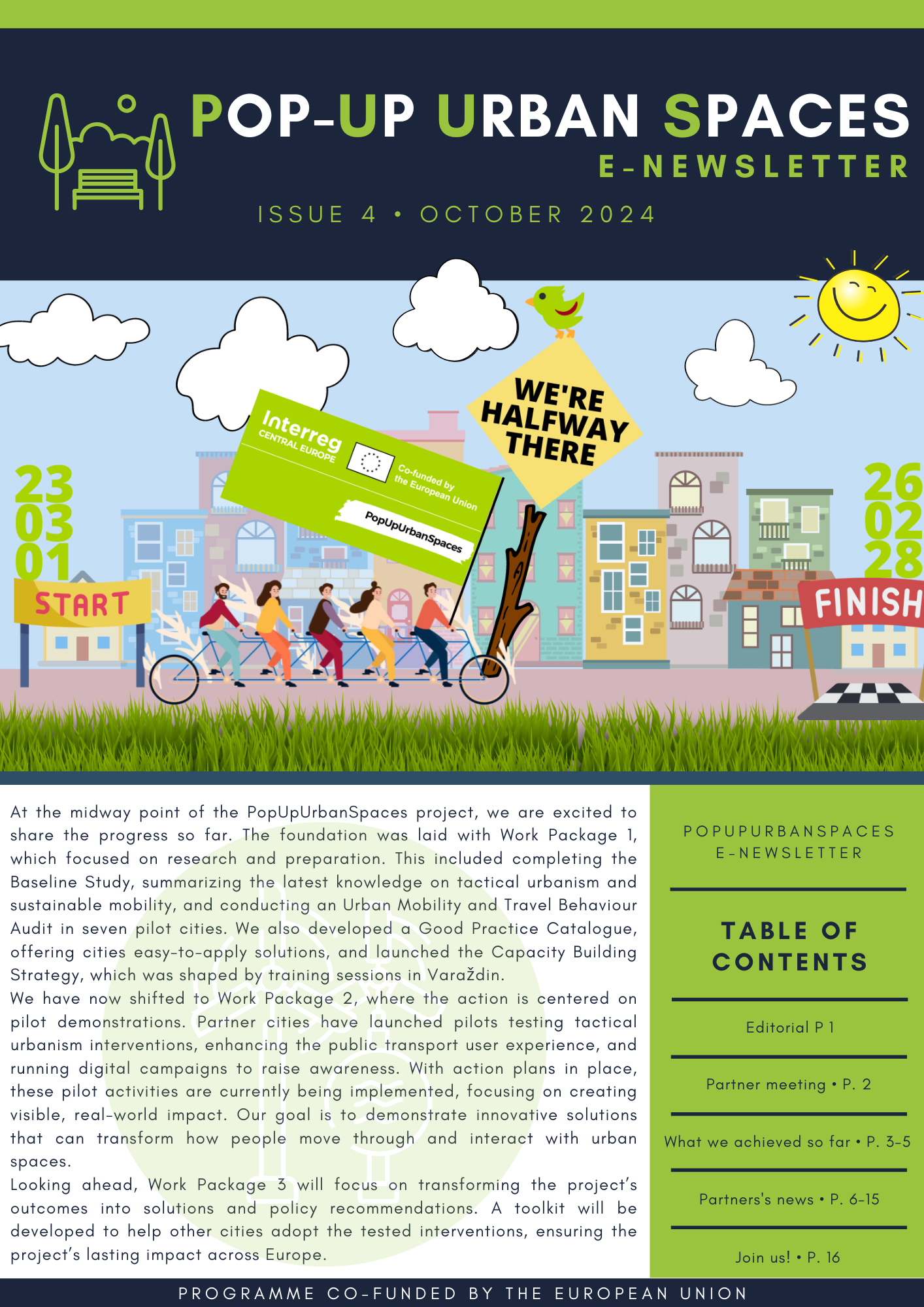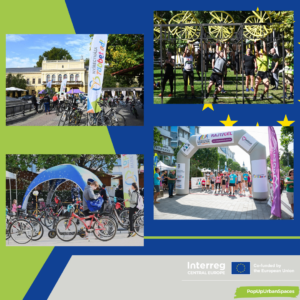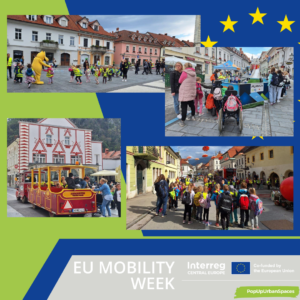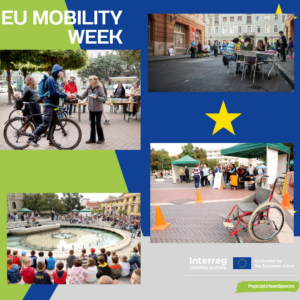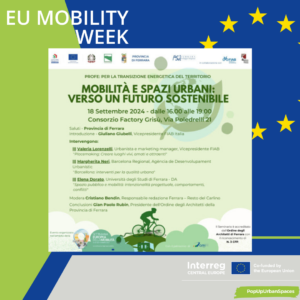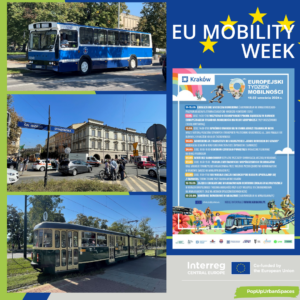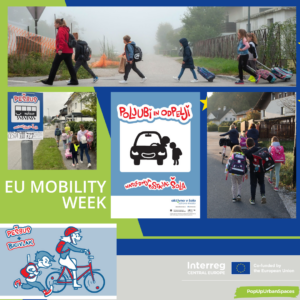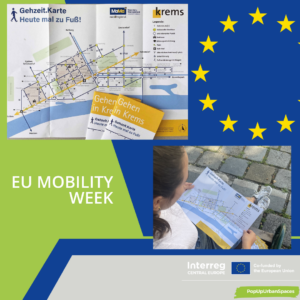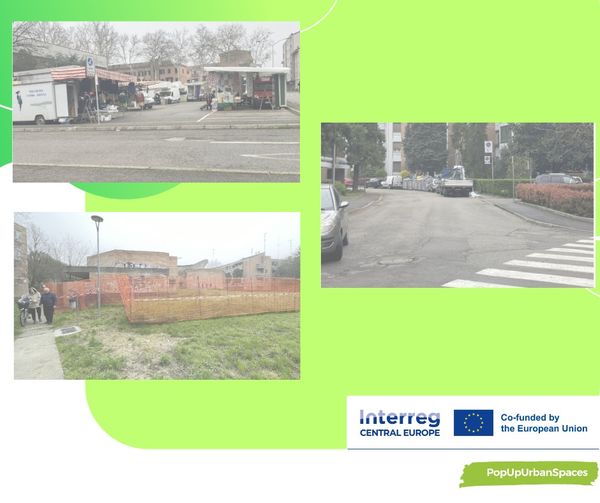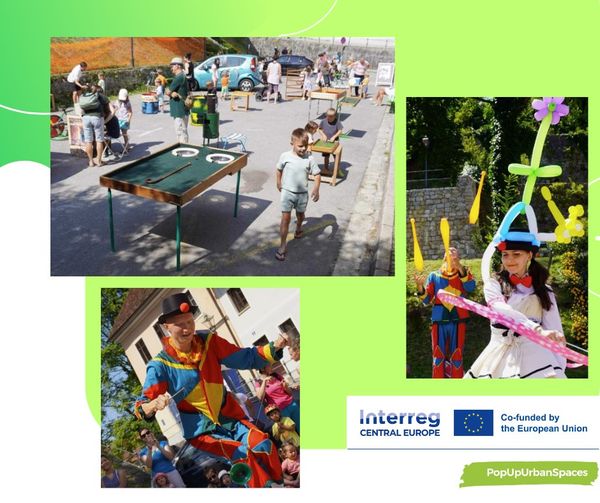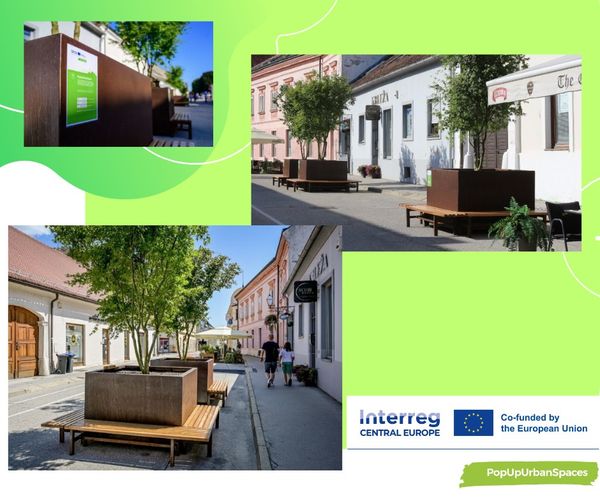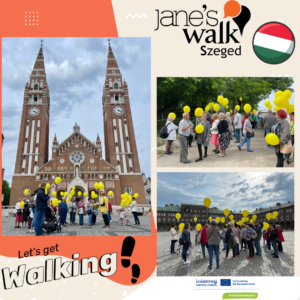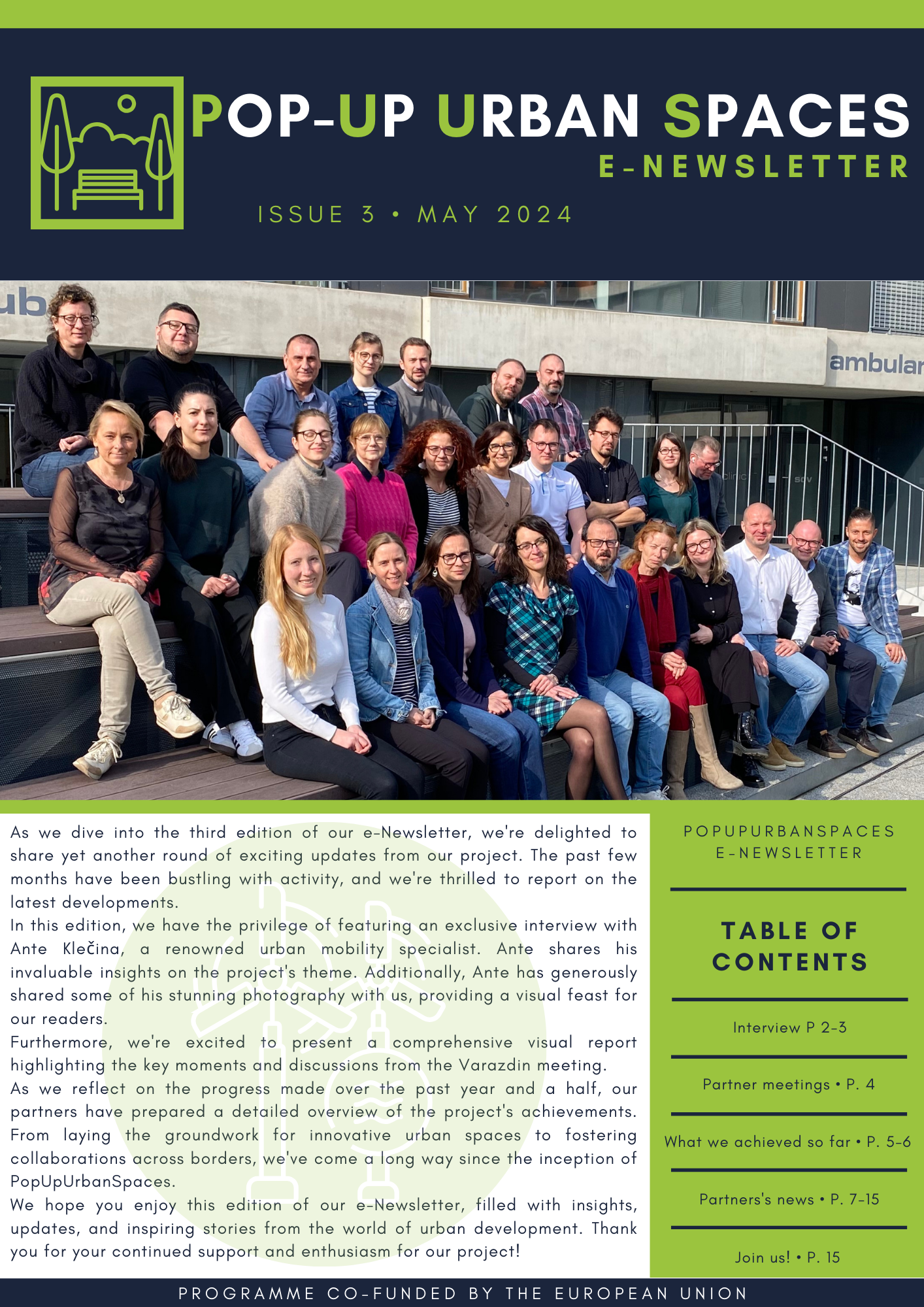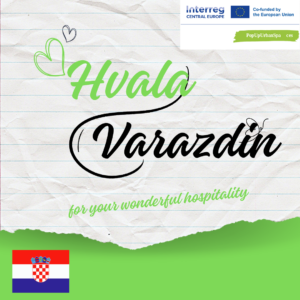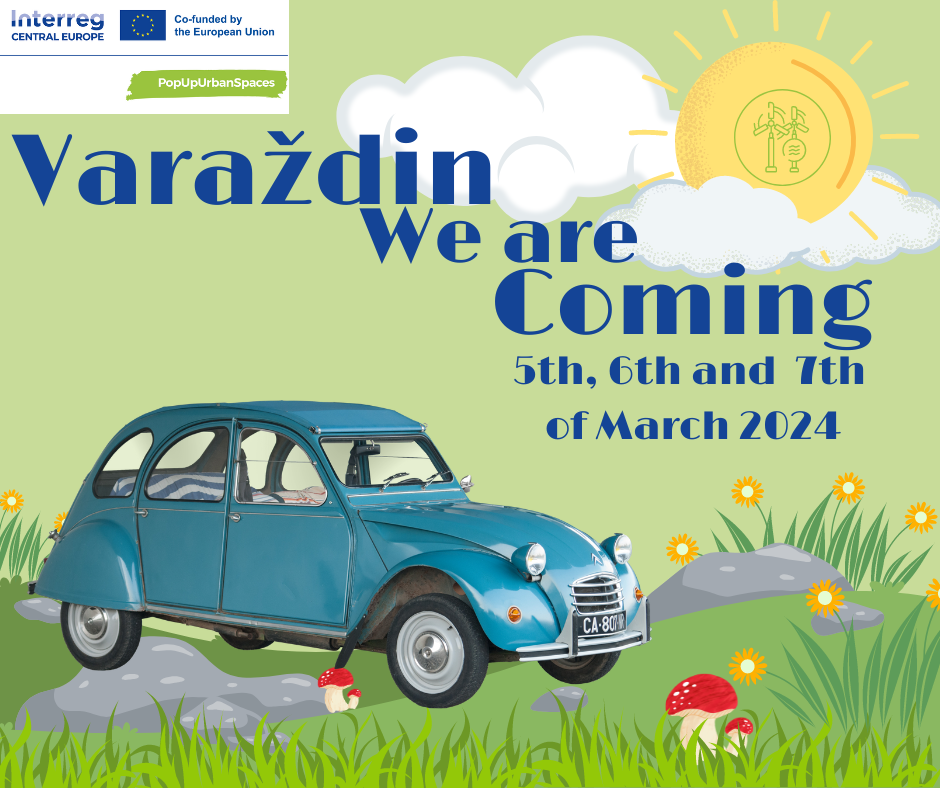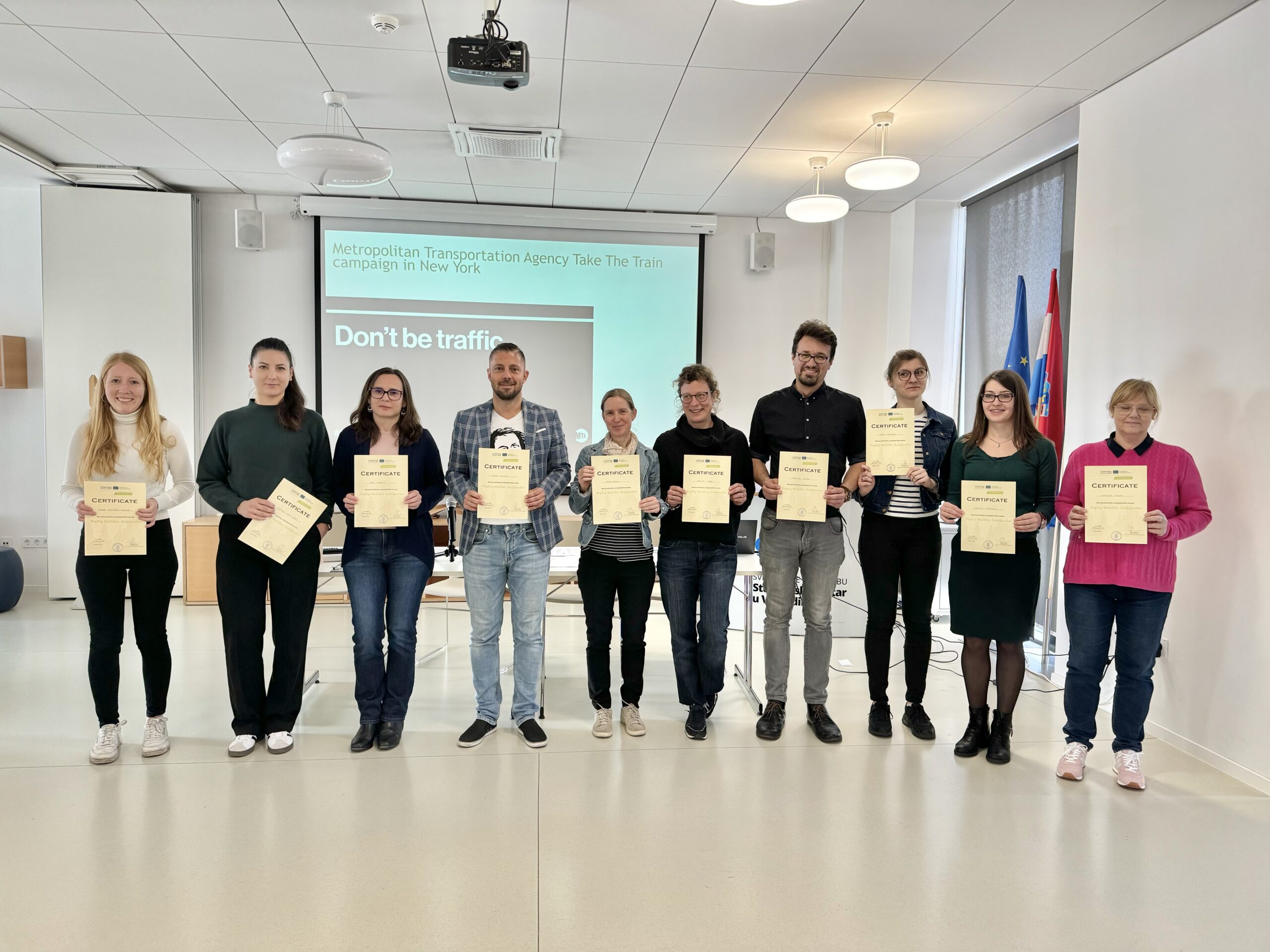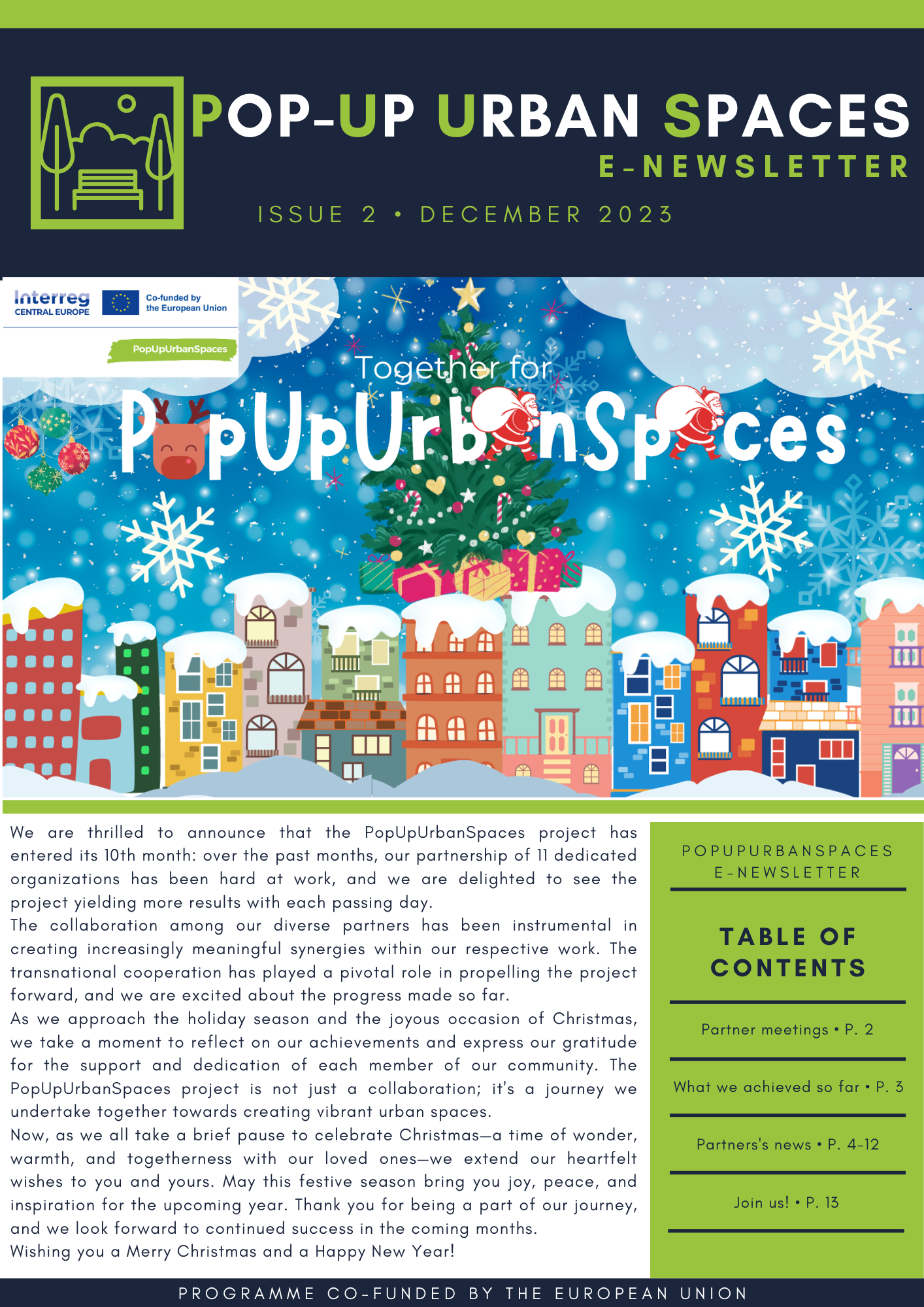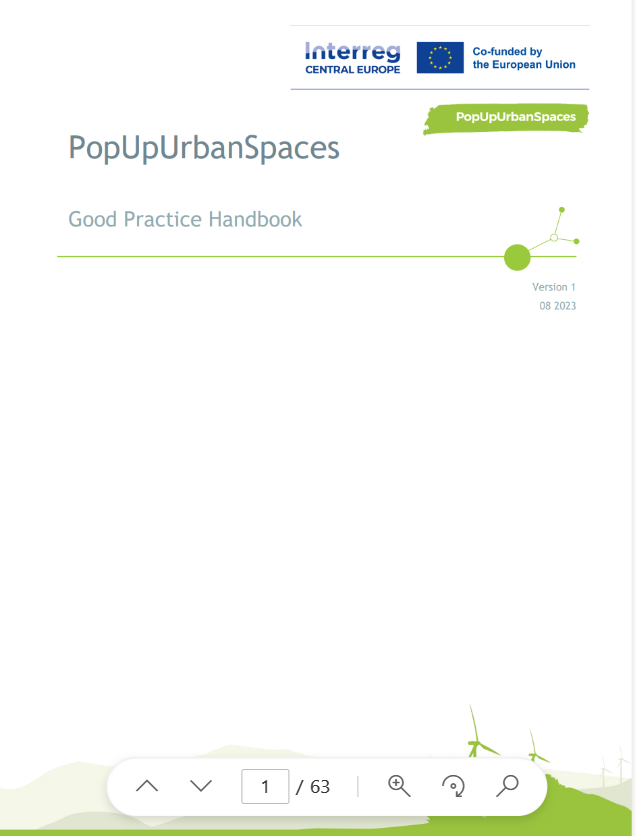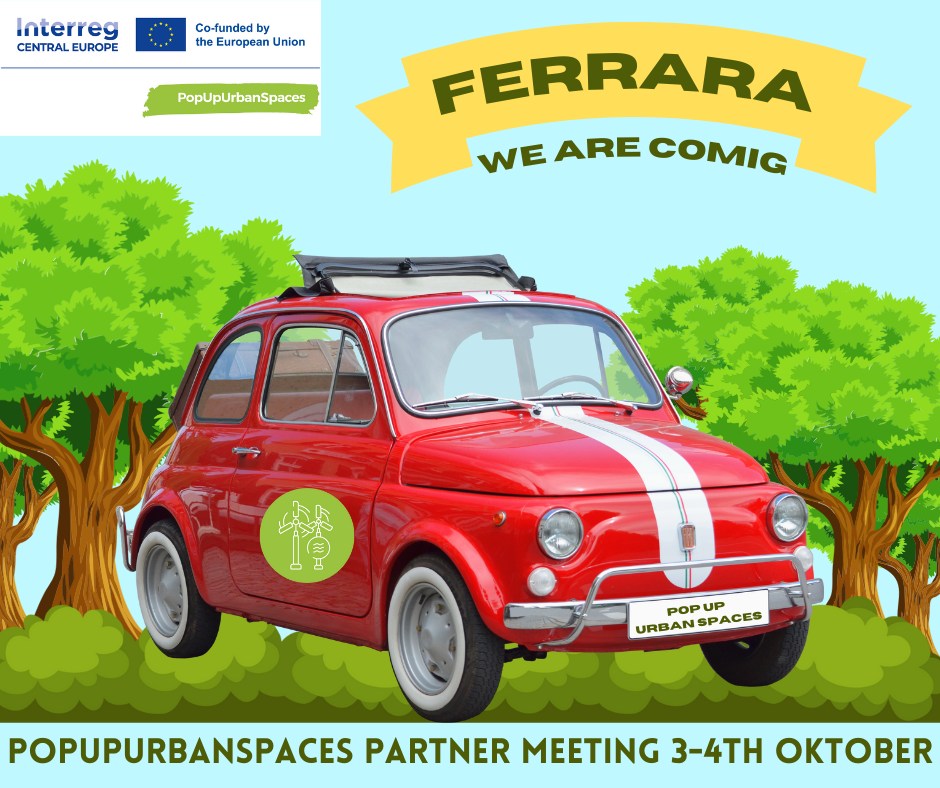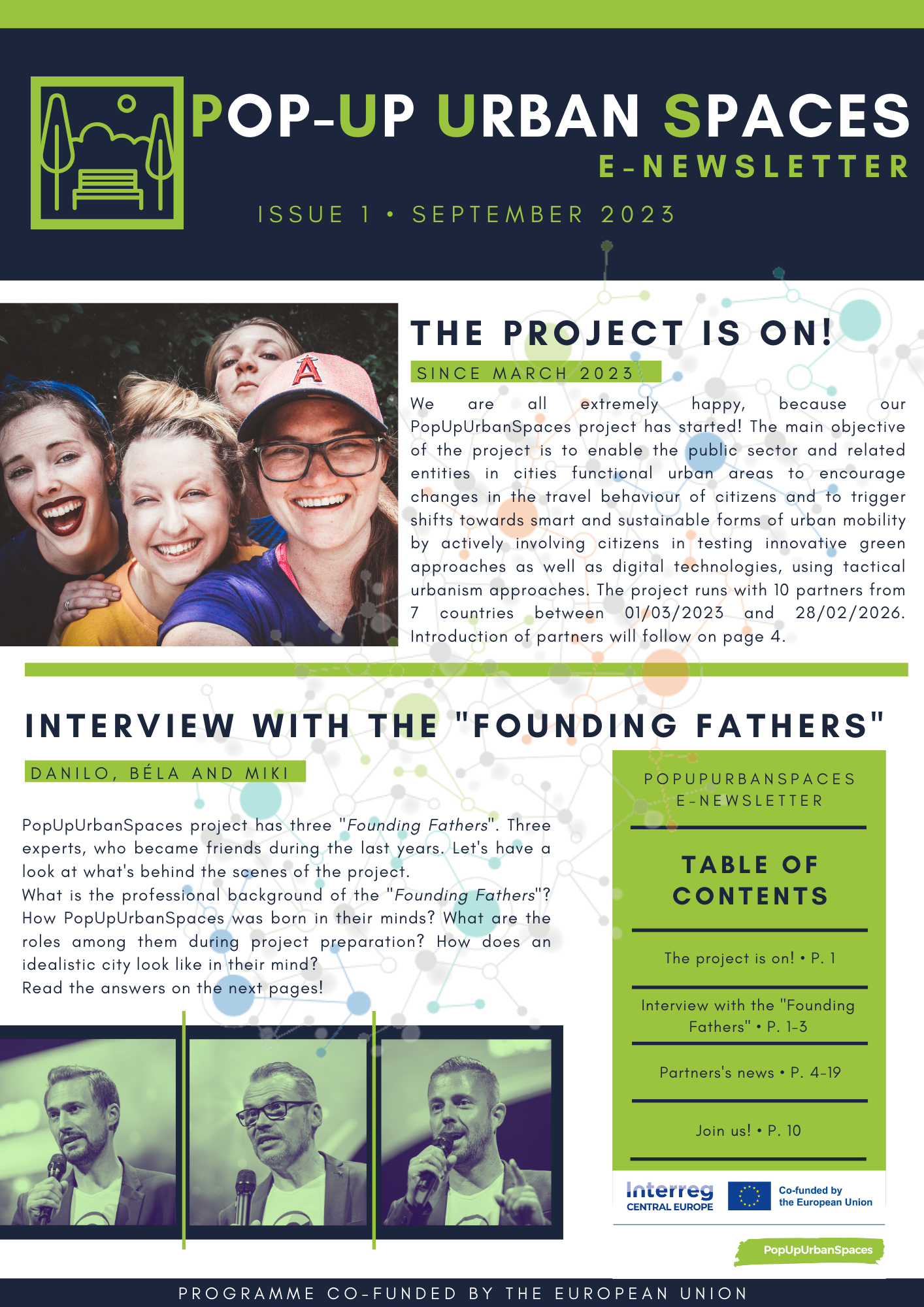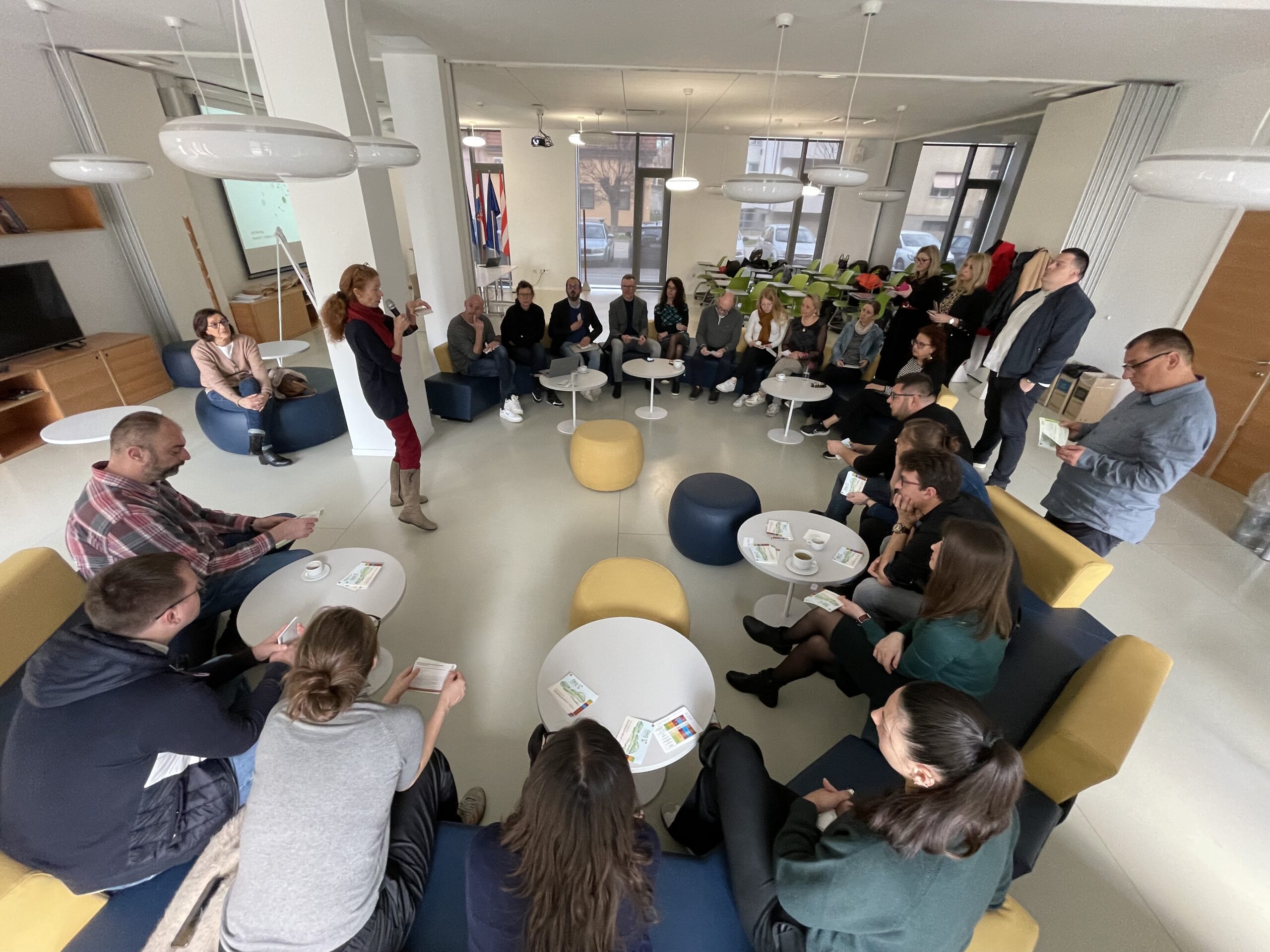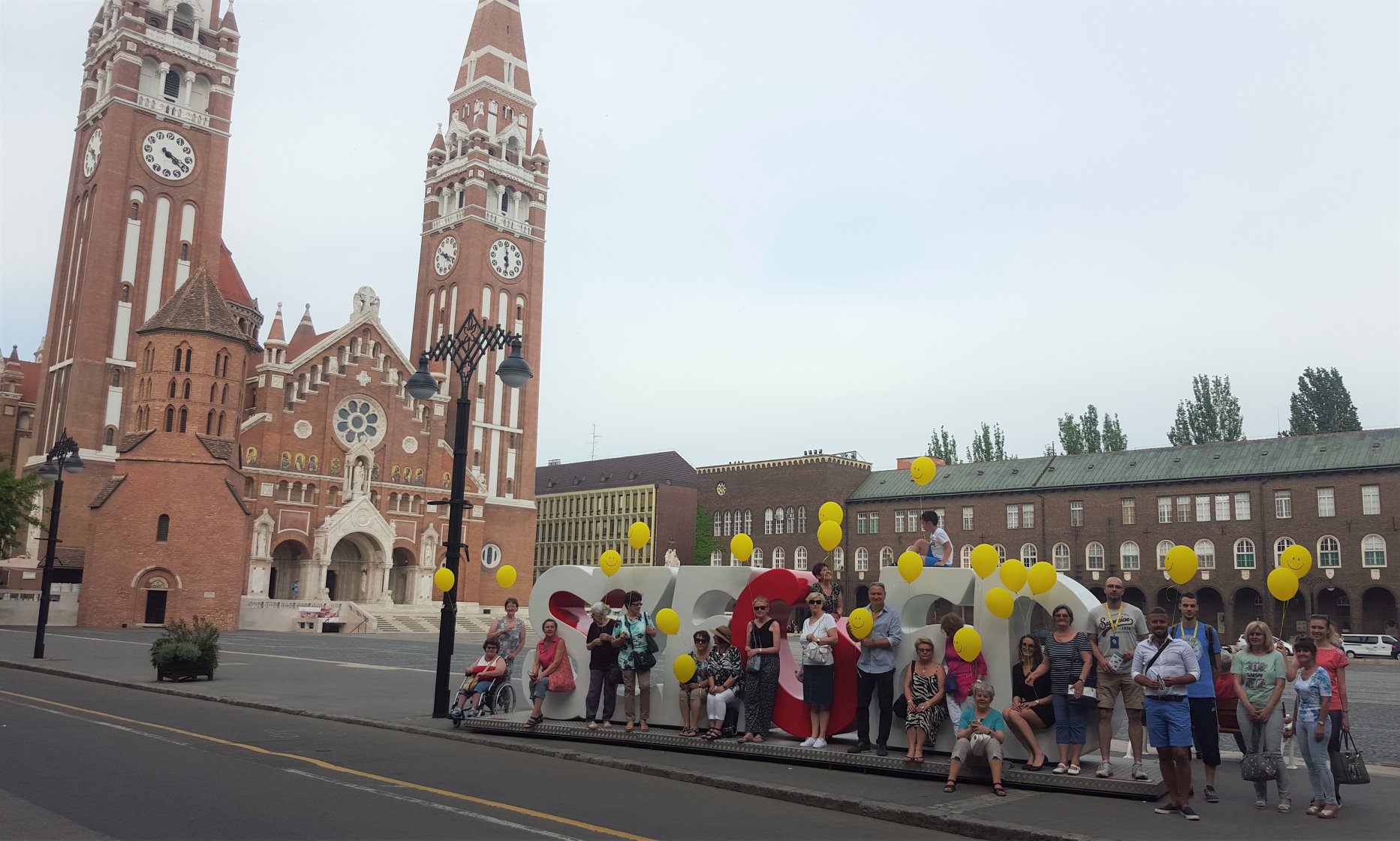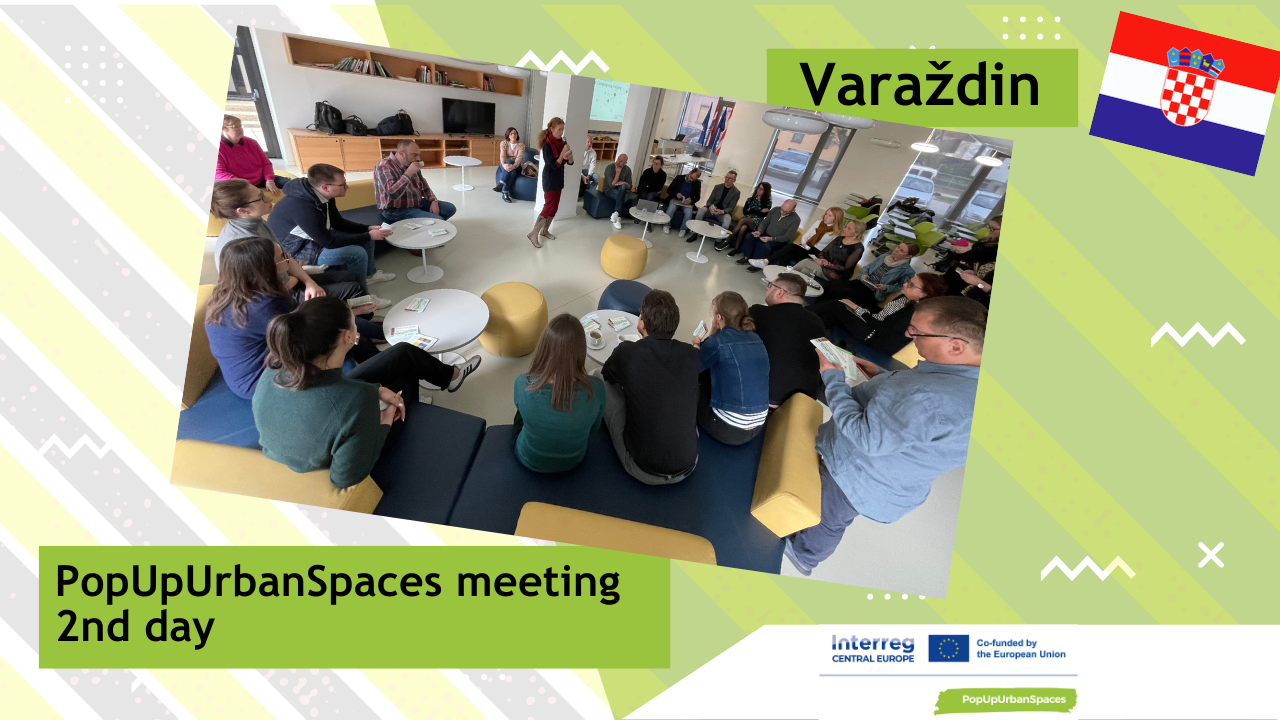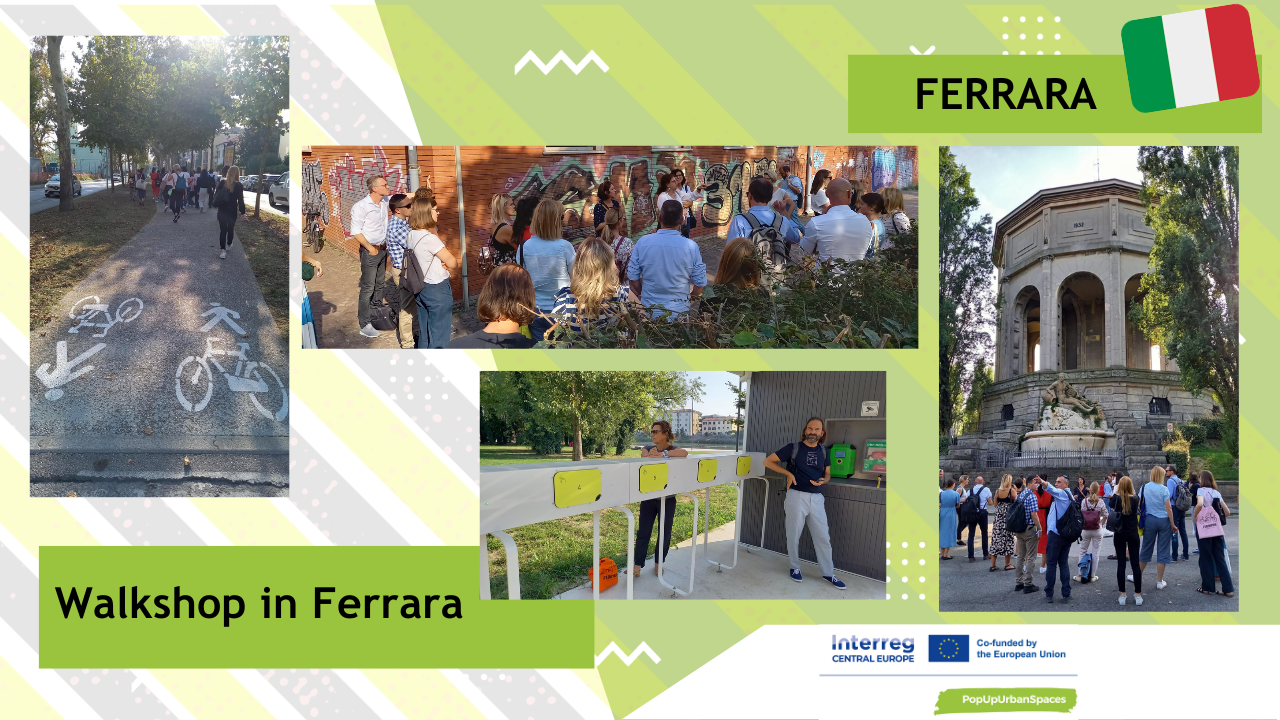Project overview
Facilitating Shift Towards Active Forms of Mobility by Changing the Attitude and Travel Behaviour of Residents Through the Use of Green, Low-cost Tactical Urbanism and Placemaking Solutions
Mobility in our cities is still dominated by cars. Sustainable options often exist but are underused. A change of user behaviour is needed. The PopUpUrbanSpaces project applies a “show and tell” approach to raise awareness on the issue. The partners design pop-up interventions to show citizens and policy makers what it would be like to have streets and public spaces not dominated by cars. And they develop digital campaigning tools to tell citizens about risks of car-oriented urban mobility.
-
2,29m €
-
Project Budget
-
80%
-
of the Budget is funded by ERDF
-
7
-
Countries
-
9
-
Regions
-
10
-
Partners
-
1
-
Pilots
Duration
Start date
End date
Project progress
About the project
Project partnership
Project partners

Lead partner
Municipality of Kamnik
Department of development and investments – European projects office
Project partner
Urban and Rural Development Planning Unit
Environment dept
Regional Development and International Cooperation Department
World Heritage Office
Roadmap
Specific problem
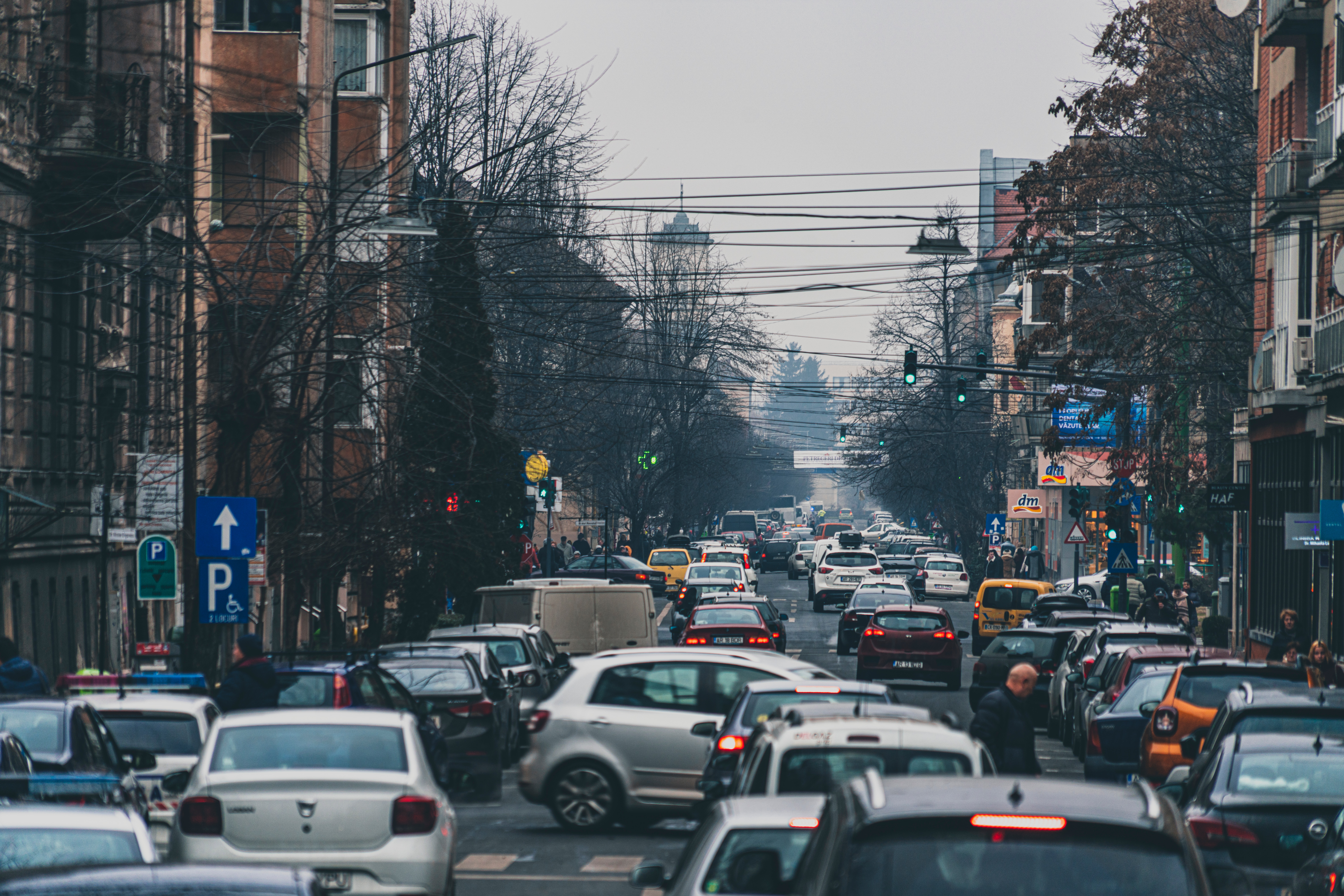
A key challenge that hinders making urban mobility systems in Central Europe more sustainable (that would necessitate the drastic reduction of car use) is that most people are not willing to abandon cars and shift to a combination of public transport, micro-mobility, and active forms of transport (walking and cycling). Key facts of this challenge:
Main objective
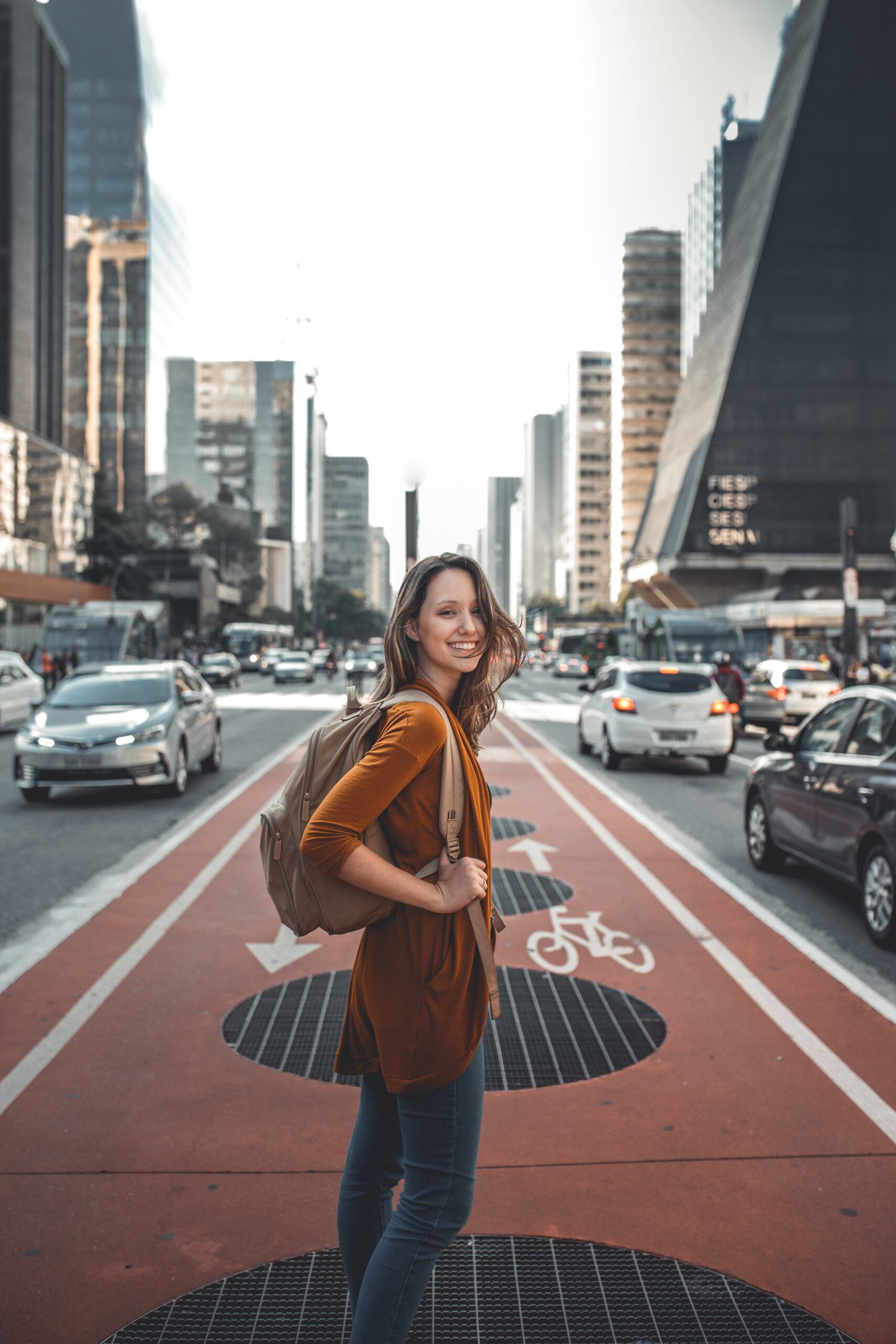
To enable the public sector and related entities in cities functional urban areas to encourage changes in the travel behaviour of citizens and to trigger shifts towards smart and sustainable forms of urban mobility by actively involving citizens in testing innovative green approaches as well as digital technologies, using tactical urbanism approaches.
Our approach #1 - Tactical urbanism
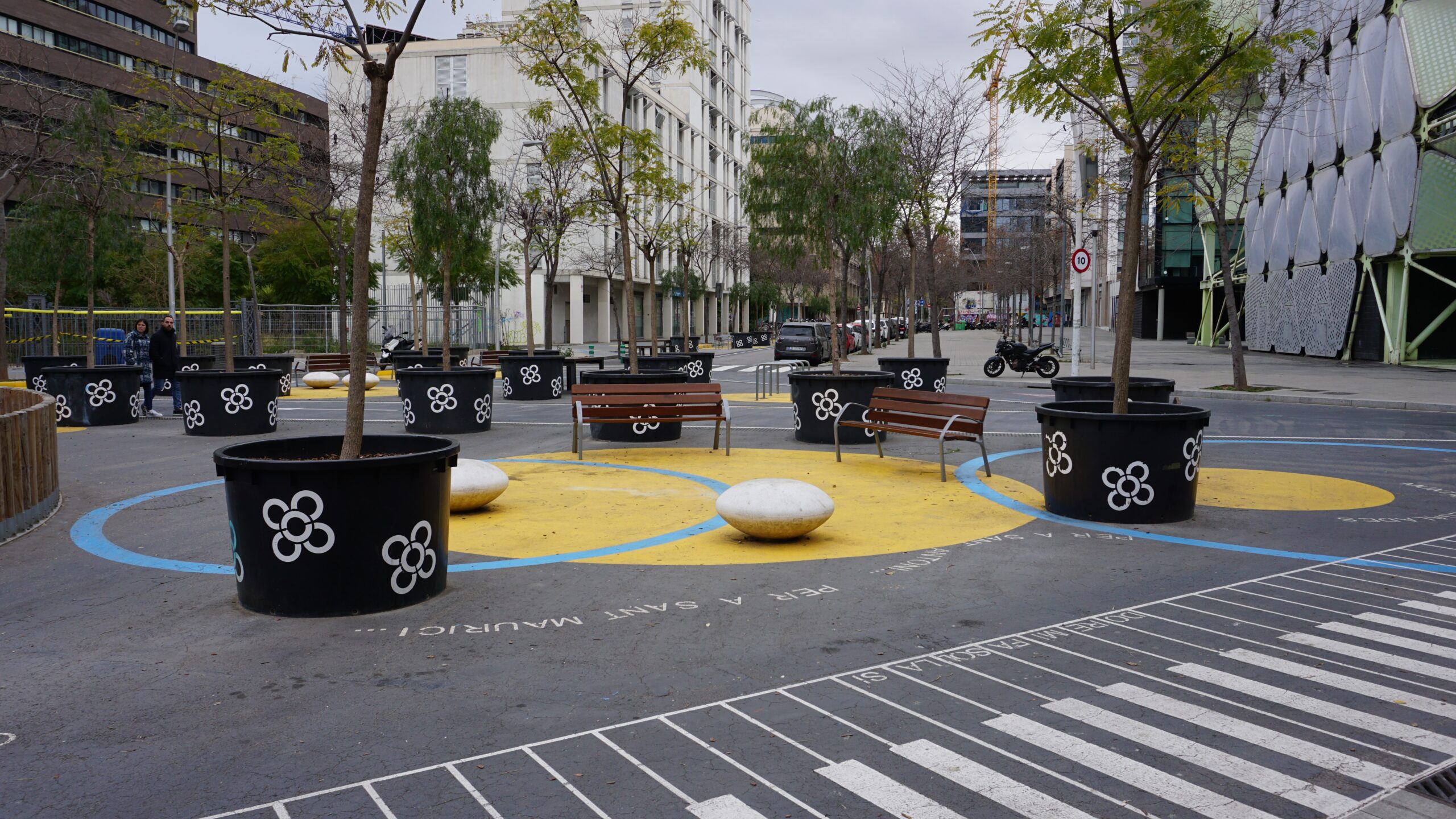
The term tactical urbanism (pop-up urbanism, DIY urbanism, guerrilla urbanism) describes temporary, low-cost interventions, aimed at improving local neighbourhoods, experimenting with new solutions to specific challenges. Using temporary solutions enables local actors to test new (often innovative) solutions to local challenges before making massive financial commitments and irreversible changes.
Our approach #2 - Placemaking
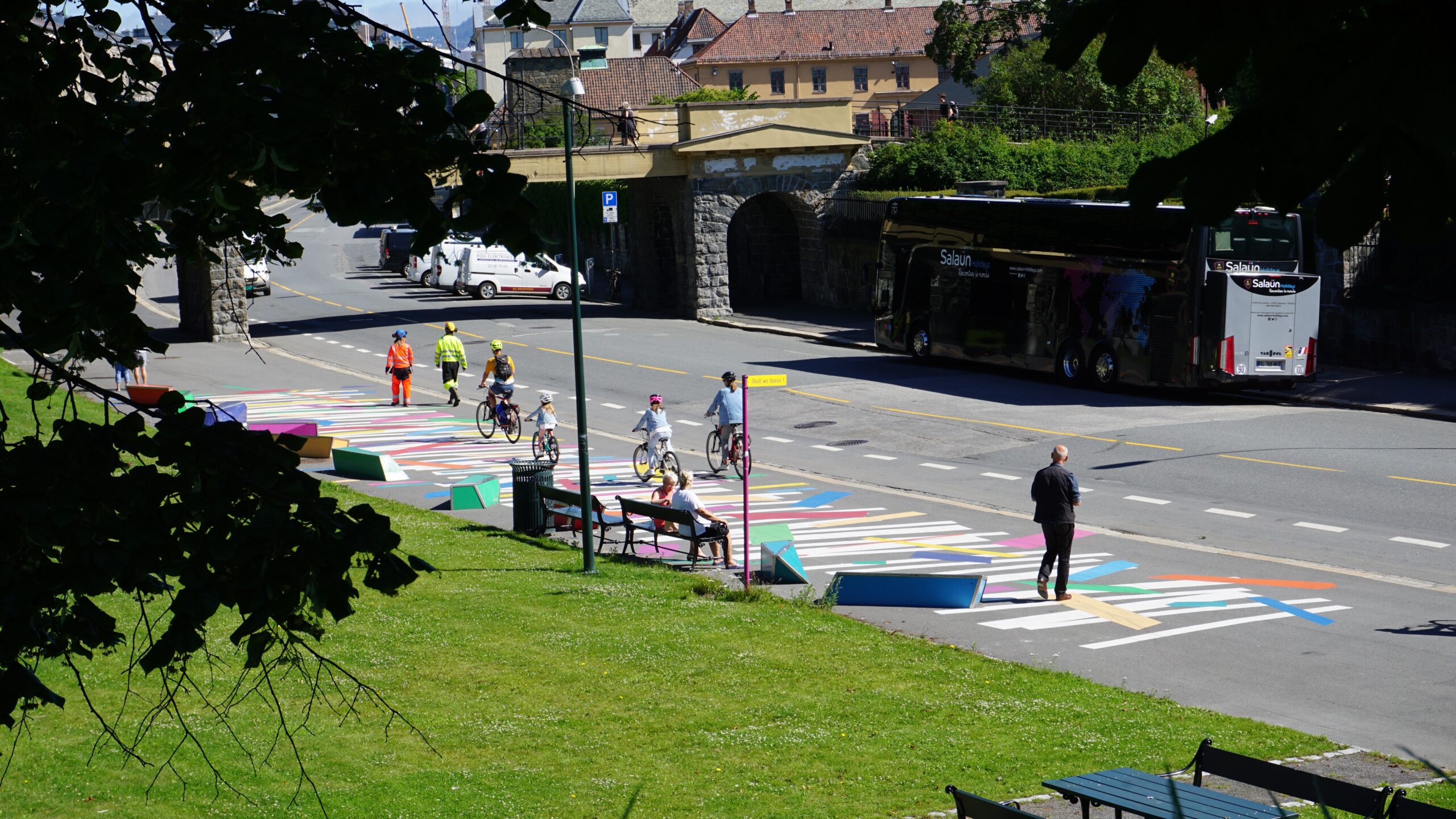
Placemaking is a holistic approach to the planning, design, “making” and management of public places. It is aimed at making public places that are attractive for people. Tactical transit applies to the technique of using temporary methods to increase the efficiency of transport and enhance passenger experience
Our approach #3 - Campaigning
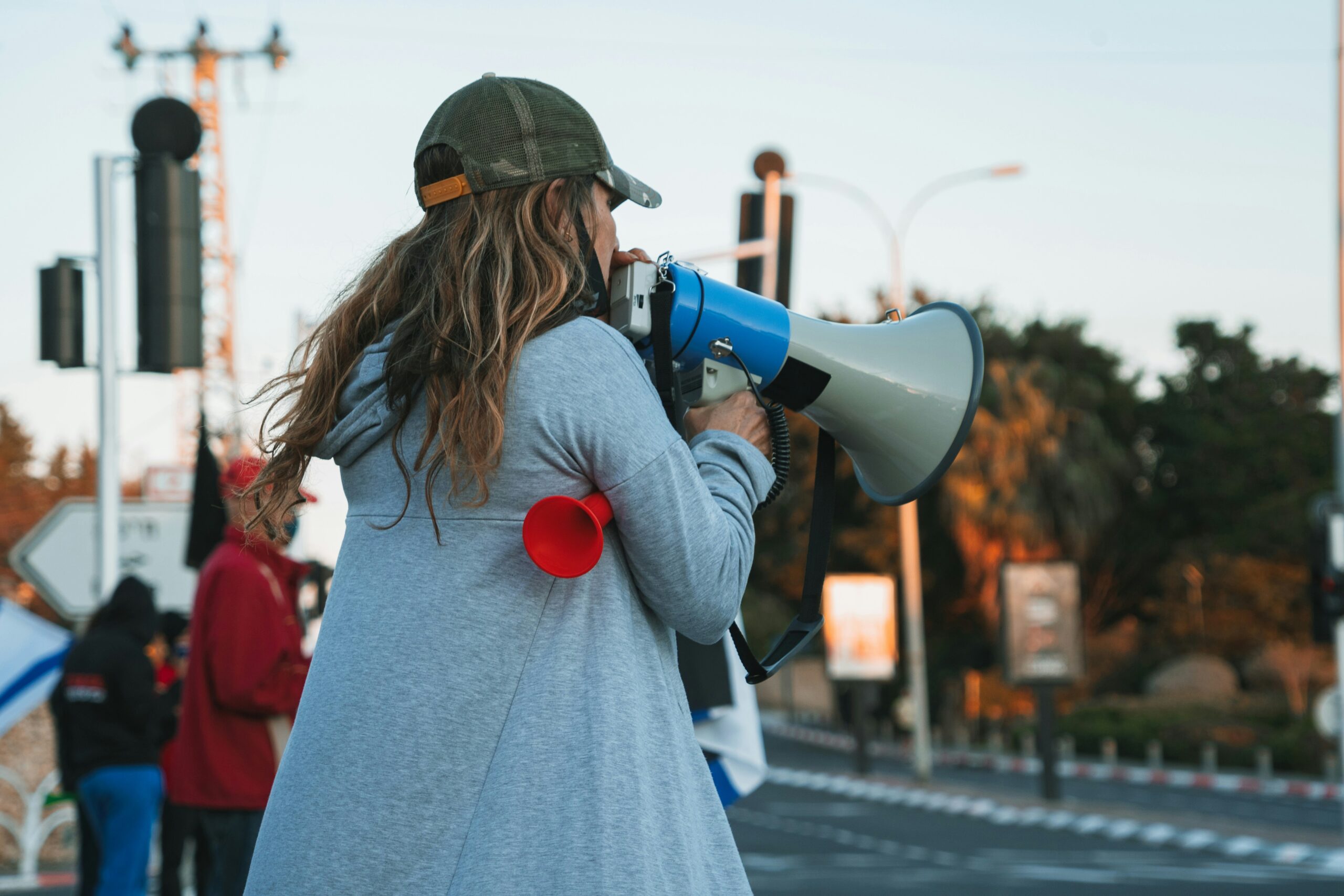
The PopUpUrbanSpaces approach is based on the concept of “Show and Tell”: the project enables cities to apply innovative methods based on tactical urbanism/placemaking practices to SHOW citizens (and decision-makers) through pop-up interventions what it would be like to have streets, public spaces not dominated by cars. the project develops innovative digital campaigning tools/methods to TELL (explain) people the risks of car-oriented urban mobility.
Impact, solution
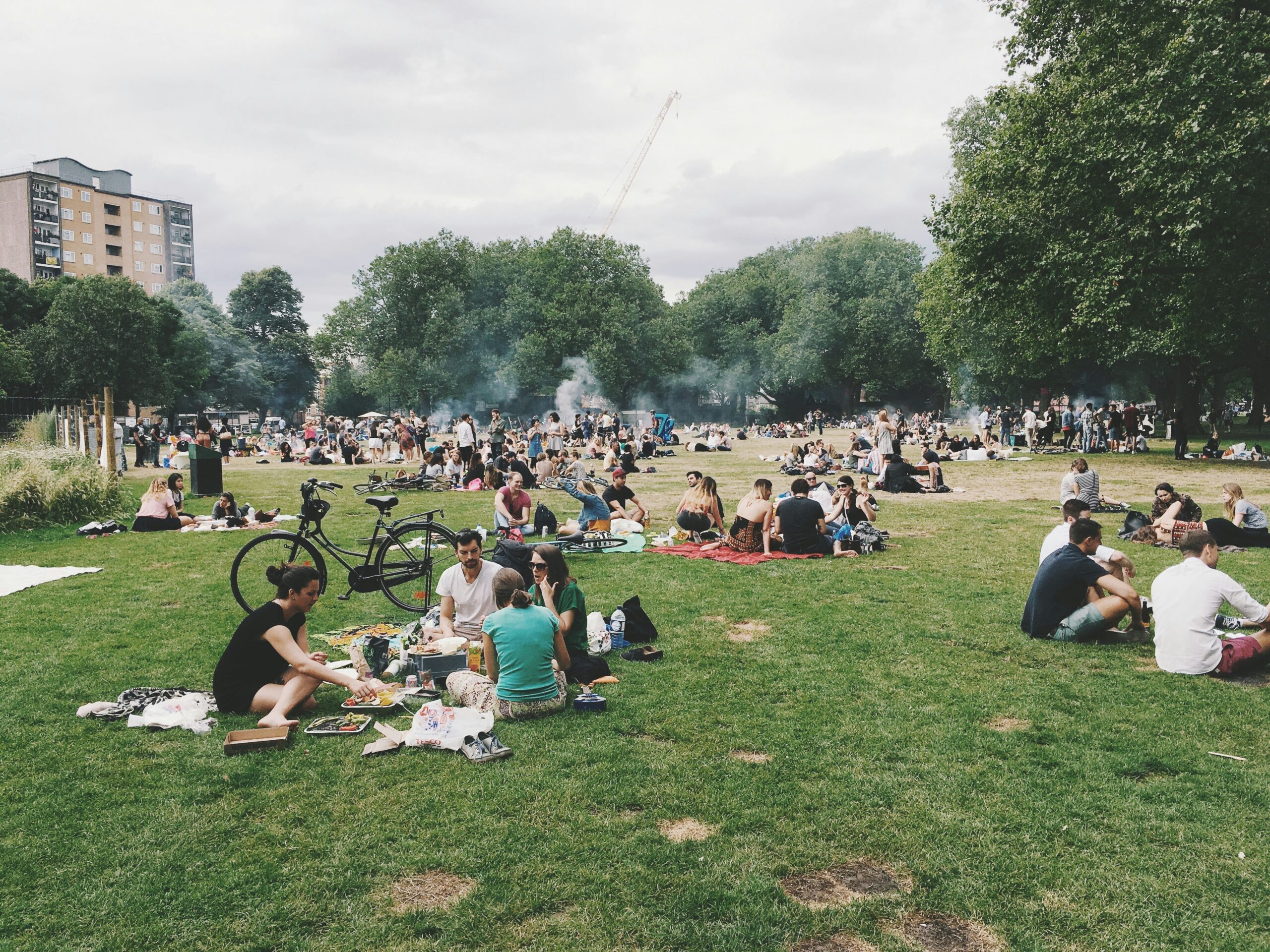
To meet its objectives, the project takes existing knowledge to design a capacity-building strategy and train partners in tactical urbanism/digital campaigns. Using this knowledge partners design plans for demonstration actions, implement and assess them. Then, using the lessons from the pilot, the partnership develops and disseminates solution tailored to the target group. To scale up project results, pilot cities also develop territorial plans that recommend specific interventions as well as policy proposals. Urban-rural partnership networks facilitate closer interrelation between the main centres and the surrounding communities. Addressing the challenge on a transnational level facilitates sharing knowledge and experience between partners to develop common solutions and gives the results transnational visibility.
News
Events
Pilot actions
Outputs
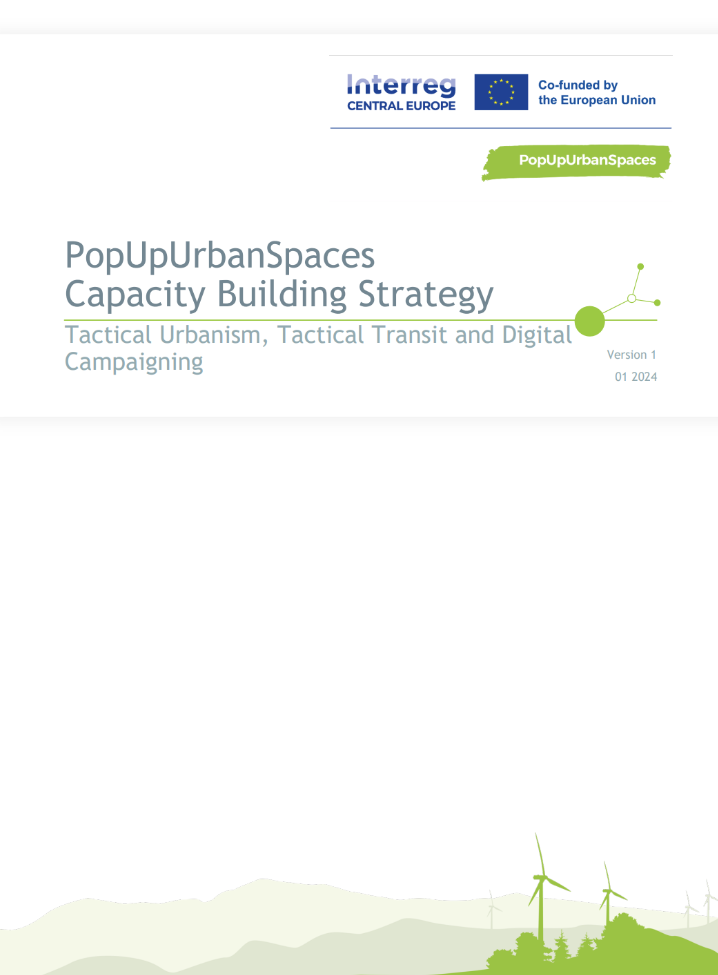
O.1.2. PopUpUrbanSpaces Capacity Building Strategy
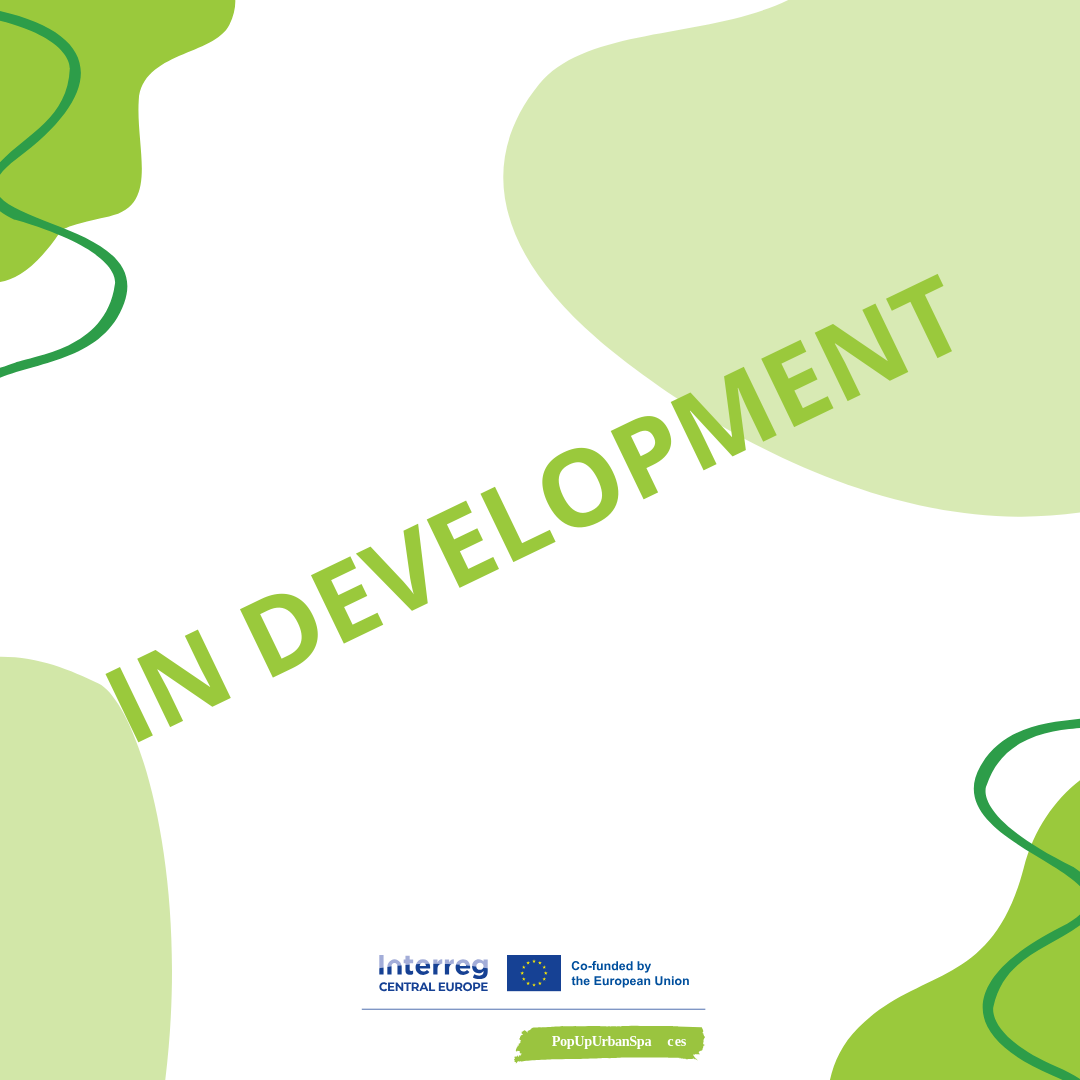
O.3.1. PopUpUrbanSpaces tool kit for tactical urbanism, tactical transition and digital campaigning interventions

O.3.2. PopUpUrbanSpaces territorial action plans
Project documents
PopUpUrbanSpaces
The project lead partner is responsible for the content of this project website.
